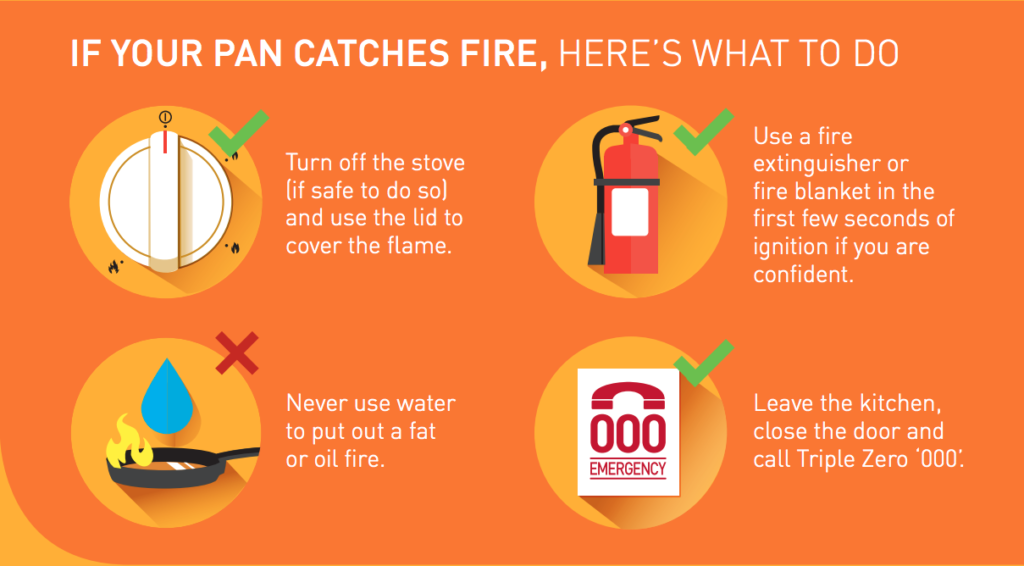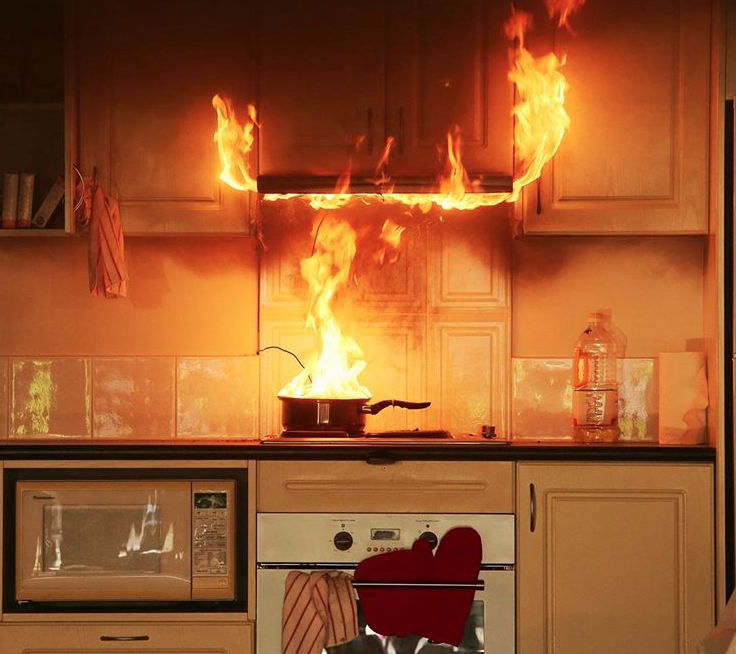Fire, is an ever-present hazard in Australia and causes more than 100 fatalities and over 3,000 injuries each year.
Do you know what to do in a fire? Do you know what to do to prevent fire?
It’s important to know how to react in a fire situation and to minimise the risks in your home. This way we can all stay safer together.
What to do in case of a fire?
If you hear a smoke alarm and there’s a fire in the building:
1. Keep calm and act quickly, get everyone out as soon as possible.
2. Don’t waste time investigating what’s happened or rescuing valuables.
3. If there is smoke, keep low where the air is clearer.
4. If it’s safe to do so, close all doors on the way out to prevent fire and smoke from spreading.
5. Once you get out, stay out. Never go back inside a burning building.
6. Call Triple Zero (000) from a neighbour’s or your mobile phone.
In an emergency call Triple Zero (000)
The Triple Zero (000) service is the quickest way to get the right resources from emergency services to help you and should be used to contact Police, Fire or Ambulance services in life-threatening or time-critical situations.
Calls to Triple Zero (000) are free and can be made from mobile phones, home or work phones or pay phones.
MINIMISE YOUR RISK: COMMON HOME FIRES
COOKING FIRE SAFETY
FACT – Almost half of all house fires start in the kitchen.
- Never leave cooking unattended. Stay in the kitchen while cooking and turn off the stove before you leave.
- Don’t put anything metallic in the microwave and always double-check the timer.
- Keep matches and lighters out of reaches of children.
- There are many dangerous substances in the kitchen. Flammable materials such as aerosols, cleaning agents and cooking oils should be stored away from heat.
- Avoid cooking under the influence of alcohol or drugs.
- Keep loose clothing, fabrics, tea towels, curtains and flammable items away from the stove.
- Turn pot handles inwards. Pot handles hanging over the edge of the stove can be easily knocked or grabbed by children.
- Keep your oven, range-hood and grill clean and in good working order. A build-up of grease and fat can ignite in a fire.

Prevent electrical fires
- Don’t overload powerpoints and power boards.
- Regularly check electrical leads for damage and faults.
- Never use faulty electrical leads or appliances.
- Store your electric blanket safely – roll don’t fold.
- Before going to bed, turn off all electrical appliances at the powerpoint.
- Turn off electric blankets and heaters when you’re not at home and before getting into bed.
Prevent fires from heaters & open fires
- Keep everything one metre away from your heater.
- Install and use as per the manufacturer’s instructions.
- If you suspect a fault, have the heater serviced or replaced.
- Always supervise young children in rooms with open fires or working heaters.
- Ensure flues and chimneys are regularly cleaned.
- Strong fire screens should be set up in front of open fires.
- Never use wheat bags in bed.
Prevent clothes dryer fires
- Clean your lint filter before or after each use.
- Ensure there is adequate airflow around your dryer.
- Don’t leave the dryer operating when you’re not home.
Prevent fires from cigarettes & candles
- Keep candles well away from curtains with open windows and put them out when you leave the room.
- Keep matches and lighters out of reach of children.
- An adult should be present at all times when a candle is being used.
- Extinguish cigarettes properly before disposal.
- Never smoke in bed. It’s extremely dangerous.
- Only use child-proof lighters and deep ashtrays.





